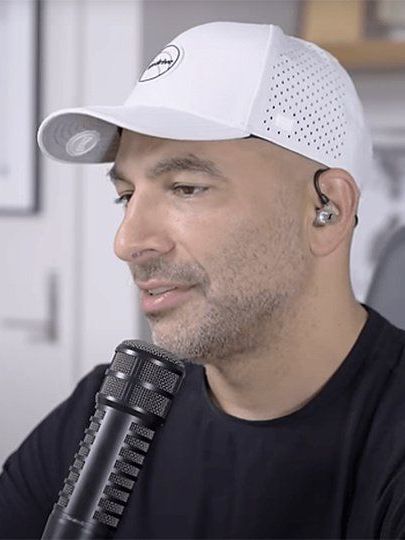Fueling Your Gains: The Science-Backed Nutrition Guide to Lean Bulking
Expert Cited: Jeremy Ethier
It's time to ditch the "see-food" diet and embrace a strategic approach to nutrition that will supercharge your muscle-building journey. As important as we think our time is in the gym (and yes, it IS important) your workouts are just the spark – the real magic happens in the kitchen.
In this fantastic interview on Jeremy Ethier's YouTube Channel, various experts weigh in on muscle building. We've tried to zero in on key approaches related to nutrition and summarize that for you here.
The Caloric Balancing Act: Surplus vs. Maintenance
Dr. Eric Helms, a pro bodybuilder and seasoned researcher, say the first step is understanding your energy balance. In simple terms, you need to consume more calories than you burn to build muscle. Okay, not so profound…yet. He goes on to say before you start piling your plate high, consider your starting point.
- If you're carrying excess body fat: Contrary to popular belief, a calorie surplus might not be the most effective approach (wait, what?!?!). In fact, research has shown that individuals with higher body fat levels can actually maximize muscle growth while maintaining or even slightly reducing their calorie intake. This allows you to build muscle while shedding fat, a win-win scenario!
- If you're already lean: A modest calorie surplus is the way to go. But don't go overboard! Excessive calories will lead to more fat gain than muscle gain. Dr. Helms recommends aiming for a surplus of 300-500 calories for beginners, gradually reducing it to 100-200 calories as you become more experienced. Remember, the goal is to gain muscle, not just weight.
Protein: The Building Blocks of Muscle
Alan Aragon, a renowned nutrition expert, highlights the critical role of protein in muscle growth. Aim for a daily intake of 1.6-2.2 grams of protein per kilogram of body weight (or 0.7-1 gram per pound). This may seem like a lot, but it's essential for maximizing muscle protein synthesis, the process by which your body builds new muscle tissue.
Spread your protein intake evenly throughout the day, aiming for 3-4 meals containing 20-40 grams of protein each. This will ensure a steady supply of amino acids (the building blocks of protein) to your muscles, promoting optimal growth and repair.
You have to tackle this with the same intensity you would as your workouts. Hitting your protein goals is HARD unless you're very methodical with your diet.
The Best Protein Sources
Quality matters when it comes to protein. Choose a variety of sources throughout the day and week, incorporating both animal and plant-based options:
-
Animal Sources: Lean meats (chicken, turkey, beef), fish, eggs, dairy (Greek yogurt, cottage cheese)
-
Plant Sources: Lentils, beans, tofu, quinoa, nuts, seeds
Don't forget about whole eggs! Research has shown that the cholesterol in eggs can be beneficial for testosterone production, a key hormone for muscle growth. Aim for 2-3 whole eggs per day as part of your protein intake.
Practical Tips for Optimizing Nutrition
Track your intake: Use a food diary or app to monitor your calorie and protein intake. This will help you stay on track and make adjustments as needed. MyFitnessPal has been around forever, the free tier has everything you need to get started (including macro breakdowns and barcode scanning) so if you're not already using it, give it a whirl.
Focus on whole, nutrient-dense foods: Choose minimally processed foods like fruits, vegetables, whole grains, and lean protein sources.
Don't forget about carbs and fats: While protein is essential, carbohydrates and fats also play important roles in energy production, hormone balance, and overall health. Aim for a balanced macronutrient ratio that suits your individual needs and preferences.
Hydrate: Water is crucial for muscle function and recovery. Aim for at least 2-3 liters of water per day, more if you're sweating heavily during workouts.
Be consistent: Nutrition is a long-term game. Stick to your plan consistently for optimal results.
By following these science-backed nutrition strategies, you'll be well on your way to achieving your muscle-building goals while maintaining a lean and healthy physique. Remember, it's not just about eating more–it's about eating smart.





